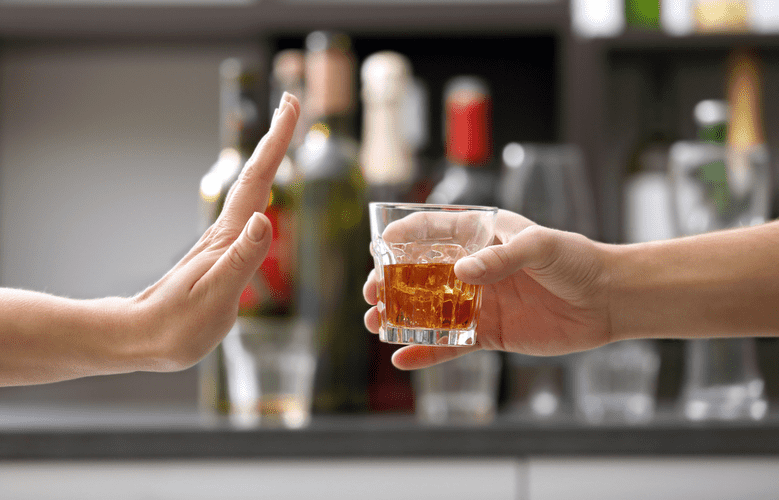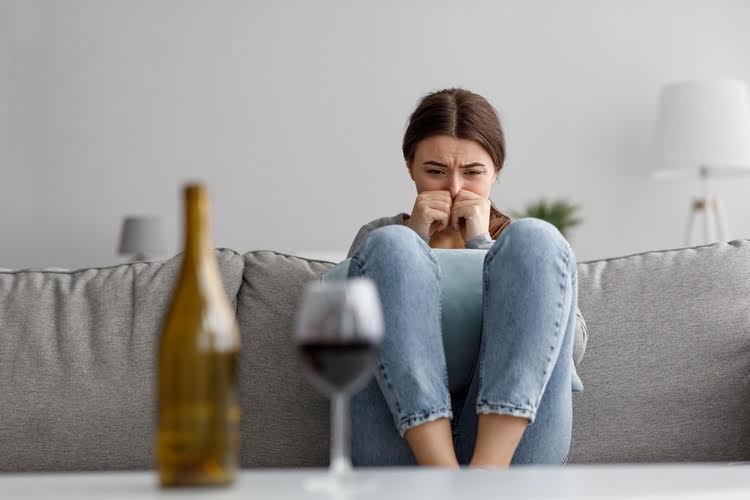Excessive alcohol consumption can disrupt the delicate balance of these neurotransmitters, leading to feelings of depression and what is alcoholism anxiety. In this article, we look at the different ways that drinking alcohol can make your depression symptoms worse. We publish material that is researched, cited, edited and reviewed by licensed medical professionals. The information we provide is not intended to be a substitute for professional medical advice, diagnosis or treatment. It should not be used in place of the advice of your physician or other qualified healthcare provider.
- If they continue drinking, they could suffer blackouts or other drinking-related consequences like accidents, arrests, and jail time.
- Alcohol dependence can increase the underlying risk for mental disorders and can make symptoms of a mental health problem worse.
- The use of medication to treat an alcohol use disorder and a major depressive disorder depends entirely on the individual and their circumstances.
- If your emotional world starts feeling unbearable, don’t be afraid to consult with your doctor to talk about medication.
A better understanding of the heterogeneity within this population will inform more personalized treatment approaches and might ultimately improve treatment response. But it is also important to note that mental health disorders like depression are closely linked with someone experiencing substance abuse in some form. It is important to seek professional help if you are using alcohol to cope with emotional pain or if your mood consistently worsens after consumption. Alcohol doesn’t just cause temporary emotional dips—it’s also been linked to long-term mental health issues. In fact, multiple studies show a strong association between alcohol misuse and major depressive disorder (MDD). If you’re being treated for both depression and alcohol abuse at the same time, however, you should be careful about combining antidepressants and alcohol.

We need a certain number of neurotransmitters in our brains to ward off anxiety and depression, and alcohol reduces that number. Using any substance in an attempt to self-medicate doesn’t work — at least not in the long term. However, with time and overuse, alcohol tends to exacerbate the other health problems you face and can cause new ones. Some medical professionals can provide the mental health treatment and care you need.
Support Groups
If depression persists after you stop drinking, it may be a sign that you are clinically depressed. Depression symptoms that last for several months suggest the need for mental health treatment. As you increasingly depend on alcohol for pleasure, you will find other activities less enjoyable. It can lead to anxiety and depression and leave you in a cycle of alcohol abuse and dependence.

Excess drinking puts you under chronic stress
This is why some people feel depressed even if they don’t drink regularly. If post drinking depression is interfering with daily life, it’s worth speaking to a health professional or seeking structured support through a program like Rock View Recovery. Aside from medication, most people struggling with both alcohol and depression benefit from some type of therapy or behavioral health support.
How to Cope with Depression After Drinking?
Though depression is experienced by many, it can often go undiagnosed and untreated. You don’t have to battle the depression alone and relying on alcohol to make you feel better will only cause further pain. Reach out to a mental health professional to talk about treatment and strategies for dealing with depression. No matter your drink of choice, alcohol can easily be abused and often is, especially when it’s used to self-medicate. In her professional career, Cayley’s primary goal is to empower patients to lead fulfilling lives by guiding them toward effective therapeutic regimens.

This is often the case with co-occurring mental health and substance abuse issues. Withdrawal is the process the body goes through in response to the abrupt cessation of alcohol or other drugs. If you’re reliant on alcohol, when you go any length of time without it and begin withdrawing, symptoms like increased anxiety, tremors, sweating, etc. are common.
Understanding why people drink is an important step in addressing alcohol-related depression. Many individuals use alcohol as a coping mechanism for stress, anxiety, or pre-existing depression. However, this can lead to a vicious cycle where drinking exacerbates these issues, leading does drinking make your depression worse to more drinking as a means of temporary relief.
It’s crucial to remember that alcohol is indeed a depressant, despite its initial stimulant effects, and its impact on mental health should not be underestimated. If you’re battling depression, alcohol isn’t going to make you feel better. It may temporarily suppress feelings of isolation, anxiety, or sadness, but that won’t last.
- It is not intended as a substitute for professional medical advice, diagnosis, or treatment.
- It’s important to differentiate between typical hangover symptoms and depression.
- Alternatively, fill in our depression self-assessment test and we will reach out to book a consultation with you.
- It also affects the part of your brain that controls inhibition, so drinking alcohol might make you feel more relaxed and less anxious.
How alcohol impacts anxiety
In some cases, people with depression cut out alcohol for just four weeks and noticed a clear difference in how they felt. There is a strong link between alcohol use and depression, a mental health condition that includes feelings of hopelessness, emptiness, fatigue, loss of interest, and more. But does regular drinking lead to depression, or are people with depression more likely to drink too much alcohol? Drinking water may not have a direct impact on feelings of depression, but rehydrating can absolutely help you start feeling better physically.
Drink plenty of water
Plus, we’re always introducing new features to optimize your in-app experience. We recently launched our in-app chatbot, Melody, powered by the world’s most powerful AI technology. Melody is here to help as you adjust to a life with less (or no) alcohol.
They’ll also teach you about the skills and resources you need to relieve anxiety in healthy ways. Reach out to Affect Therapeutics and take the first step toward feeling like yourself again. Drink plenty of water and replenish lost nutrients by eating a balanced meal with protein, healthy fats, and carbohydrates. Foods rich in B vitamins and magnesium, such as leafy greens and nuts, can help restore mood balance. Support groups, such as Alcoholics Anonymous (AA), provide a community of people going through similar struggles.


